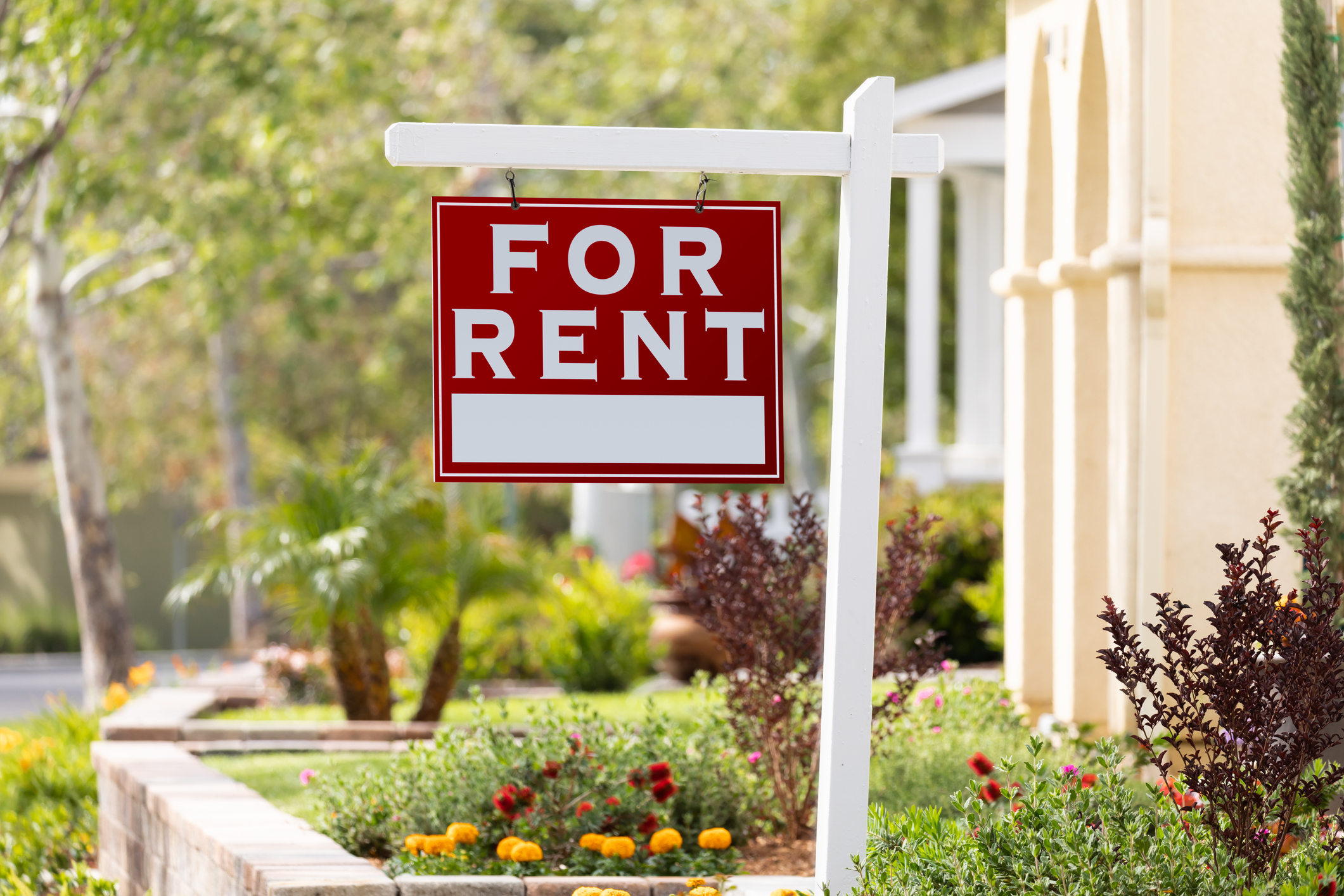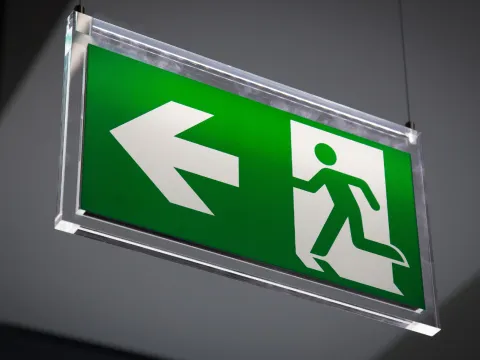
The Essentials for First-time Landlords
Summary
Reading Time
8 min
So, it’s your first time renting out a property? Or maybe you’re not new to the real estate game and you own several rental properties? Whatever your skill level, landlords all have certain main objectives like making a profit or building real estate equity. If these objectives weren’t possible, simply no one would do it. That being said, there are a few things that come before the moolah starts raking itself in. Here’s what they are:
Pricing your rental
Is the price right? Trying to pick the right number for monthly rent can be difficult to determine. Maybe your rental offers different accommodations and attractions than the others? Maybe the neighbourhood is desirable and up-and-coming? Maybe it’s got a pool in the backyard? Here are our tips on how you can properly price your rental:
- See what else is out there: Find rental properties that are comparable to yours in your area and use that as a tool. It’s good to stay competitive in the market!
- Even number: If your property is going to have more than one tenant, ensure that the price of the rent is easily distributed among tenants.
- Utilities: Is your property going to include utilities or be excluded? If they’re going to be included, you’ll need to determine the average price of utility consumption in the home as well as the highest monthly cost and be sure you’re covering it all.
- Tenant turnover and savings: There may be times when your rental property is vacant, in between tenants. Ensure that you have tucked away enough money to cover costs during this period.
Fair housing and local laws
Laws play a big part in your role as a landlord and state explicitly what you can and cannot do. In Canada, certain pieces apply to every province, like the Canada Human Rights Act when selecting a tenant, but by province, there are some differentiating details. In Alberta, Saskatchewan, and Manitoba, there exists Residential Tenancies Acts. So, brush up on these legal documents not only to make sure everything you’re doing is just but have a better understanding of your rights and protections. Still, there are things you should do that aren’t just out of legal obligation to be fair and that’s things like:
- Requiring your tenants to acquire tenant insurance: No, having tenant insurance isn’t required by law, but it will make you feel a whole lot more secure knowing that if worst comes to worst, your tenants are protected too.
- Giving notice: It’s respectful to give your tenants as much notice as possible before you enter the premises. There are also regulations in British Columbia, Alberta, Saskatchewan, and Manitoba that you must give a minimum of 24 hours notice before entering. Also, take into account their preferences. Do they prefer to be at home when you pop by, or do they prefer to be away? It never hurts to ask, and then arrange a time that works for you both.
Being reachable
Treating your rental property like it’s your business is not only best practice but expected by your tenants. Here are some ways you can be communicative and reachable to your tenants:
- Have your renters in your contacts: Simple enough? You want to be able to reach your tenants when you need to and keep organized if you have many.
- Respond accordingly and promptly: While you can outline the hours in which you are available, taking 4-7 business days to respond in this case isn’t the way to go.
- The golden rule of thumb: if you expect your tenants to be on time with payments, be on time with maintenance, upgrades, and miscellaneous communication.

Lease and rental agreements
Ah yes, the end-all-be-all contractual agreement… but it doesn’t always have to be. Yes, there are some things that you legally must include in a lease agreement but how about the things that you want to have?
- Deposit and payment information: How can payment be made? When is payment due? What happens if payment is late? These are the sorts of things that you need to outline in your lease agreement.
- Lease breaking: So, your tenant signs a two-year lease and then suddenly, they got a job in the Maldives rescuing manta rays and want to move out? Classic, happens every time. Do you have it in writing what happens next? Make sure to protect yourself and your assets if your tenant leaves you hanging.
- Subletting: It was questionable at the start when a single person moved into a home with six rooms and now you’ve found out your home is being sublet or subleased? Or maybe you have a basement suite on the bottom and a full home on the top that are entirely separate? Make sure you set some house rules in the lease agreement for these types of things. Common rules are garbage and recycling cleanup schedules, lawn care, shared spaces, and quiet hours.
- Number of occupants allowed: This is another crucial guideline that needs to be set in the lease agreement. You want to make sure that all those living in your space have completed applications and been screened and approved by you.

Updates and maintenance
What makes your property stand out? What key features do tenants want to see? Even if you have some features that require upkeep, sometimes things go wrong and they’re not possible to fix with just a YouTube tutorial. Have some maintenance and handy companies in mind that work standard hours as well as after-hours in case of an emergency, so if things go bump in the night, it’s one less thing you have to worry about.
If your property allows it, consider pets
Not only can it be easier to find tenants by allowing pets, but it’s always better to allow and set boundaries than to be closed off to the idea. We know that not all pet owners can be respectful of spaces, so, ensure the damage/security deposit would cover big cleanups and lingering pet smells if they happen.

Screen tenants
Today, it’s easier than ever before to catfish or forge documentation online. Here are some ways you can check your applicants before accepting them as your tenants:
- Credit checks: Some notable things to look for are eviction history, undue payments, debt, and more.
- Background checks: You wouldn’t want someone with a fake ID or warrant out for their arrest living under your roof, would you? Well, a background check can help you there.
- Rental applications:
Here’s where you can ask for personal information and get to know them a little bit. Some things you can ask for are their:- Job occupation and place of employment
- References
- Contact information of those who will be living there
- Two most recent pay stubs
Get landlord insurance
This one shouldn’t come as a surprise, and we’re not just saying that because we’re an insurance company. No matter how well you think you know your tenant, accidents can still happen—even if they are preventable. Landlord insurance is your one-way ticket to protecting your income, time, and budget. There’s even the choice to add optional coverage to your policy if you feel you might need it, like tenant vandalism, sewer backup, home systems protection for your heating and cooling appliances, and more. After all—it never hurts to have extra peace of mind.
Bookkeeping
Staying on top of your bookkeeping is crucial because the second you don’t— “Did you see where I put that receipt?” No, we didn’t. So, as we were saying, staying on top of your bookkeeping is important and here are some simple ways you can do it:
- Keep all your mortgage payments and papers, property taxes, maintenance expenses, landlord insurance documents, and more, all together and in a safe spot. Use a binder, or filing cabinet, or store them digitally somewhere, so you can access them whenever you need to. By storing them digitally, it definitely comes in handy when it’s time to do your…
- Taxes: Yep. Also, keep your tax returns for a minimum of seven years, especially if several properties are involved.
- Keep records: Keeping records of conversations with tenants and proof of deposits can help you in case of a lawsuit or disagreement.
Marketing your rental
Now comes the time to market your rental. Where are you going to advertise it? How will you share it? Facebook groups, online seller applications, and marketplaces are some of the best ways to do it. If you find yourself constantly advertising your rental properties, seek out a professional rental association and lister to get the job done.

Do a walk-through
Do a walk-through with the chosen tenant(s) when they move in and out. This is one of the most important tips we can give because this ensures everything was in perfect working order at the moment when you handed over the keys at the start and were able to compare it with how it was handed back over to you. Most importantly – take photos at the start and the end. Notable things to check are appliances, the home’s heating and cooling elements, lights, curtains and drapes, markings on walls, and stains on carpets. Lastly, always obtain the security deposit from the tenant either before or on the day that they move in. It’s hard to chase after something once it’s been delayed and forgotten about.
And there you have it, all the things you need to know about renting out a property as a landlord! While this list could go on and on, these are just some of the things we don’t recommend skipping out on. And remember, "happy lease, happy life"—at least we think we've heard that saying before.
Please note that the information in this article may not accurately reflect your insurance policy from Sandbox Mutual Insurance or another insurance company. Please refer to your policy or talk to your broker about your specific coverages.

FAQ'S
Why do I need landlord insurance if my tenants have tenant insurance?
Because tenant insurance protects their stuff… not your property. Landlord insurance covers the home itself, your liability, rental income loss, and even optional protection like tenant vandalism or sewer backup. Think of it as your financial seatbelt—your tenant’s policy keeps their valuables safe, but only landlord insurance protects your investment.
Do I really have to screen tenants?
A good feeling is great… but background checks, credit reports, and verified references are better. Screening helps protect you from missed rent, property damage, and any surprises that pop up after move-in. In a world where documents can be faked in five minutes, due diligence is your best friend.
How do I price my rental properly without overcharging or underselling?
Start by comparing your unit to similar rentals in your area—size, condition, parking, location, and amenities all matter. Then factor in utilities, maintenance costs, and occasional vacancy periods. The right price should keep you competitive, cover your expenses, and still leave room for profit without scaring away great tenants.



